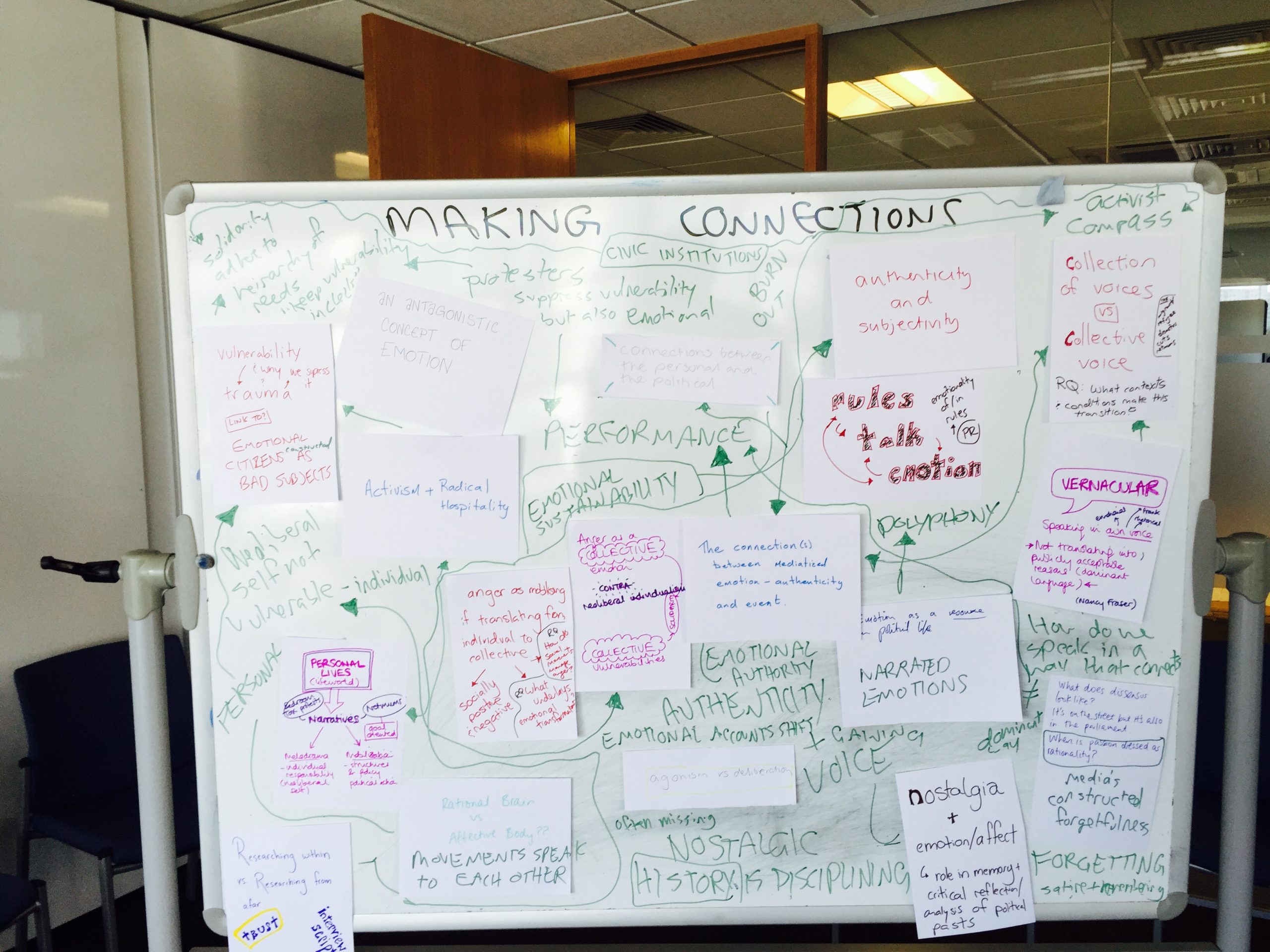Introduction
Paul Reilly, Anastasia Veneti and Dimitrinka Atanasova
The origins of this book of blogs can be traced back to ‘Politics, Emotion and Protest‘, an interdisciplinary workshop co-hosted by Bournemouth University’s Centre for Politics and Media Group and Civic Media Hub, the Department of Media & Communication at University of Leicester, the Media and Politics Group of the Political Studies Association, and the Protest Camps Research Network. This event, held on 9-10 July 2015, brought together researchers from a variety of disciplines in order to discuss the intersection between power, politics and emotions. Themes of authenticity, nostalgia and sustainability were amongst those highlighted by the workshop participants (see Figure 1).

These themes are explored in more detail by the contributors to this book of blogs.
There are five sections in this volume:
Politics, emotion and identity performance presents a series of personal reflections on the ‘affective turn’ in social movement studies. Case studies such as Anonymous, the Hong Kong protest camps and the 2016 Campaign for Nuclear Disarmament (CND) march are examined in order to explore the performance of identity in this era of global protest.
Emotion and the news media focuses on the prevalence of emotional narratives in professional journalism today. Contributors draw on examples such as the nostalgic framing of the past in Japanese media, the role of personal stories in UK press coverage of the refugee crisis, and patriotic reporting of historic events in order to shed light on these narratives.
Women, politics, activism explores how digital media has created new opportunities for women to participate in contemporary protest and social movements. Examples such as the Slutwalk movement, the role of women bloggers in Nigeria, and the Sustainable Fashion campaign on Instagram are explored in this section.
Digital media and the politics of protest examines emotion and political action through the lens of several case studies including so-called ‘hashtag activism’ in Greece, the anti-TTIP-TAFTA protests on Twitter and the role of social media in the Bahrain uprising in 2011. Contributors to this section also reflect upon how social media (dis-)empowers activists in these contexts.
Health activism examines the role of emotion in disability and other health campaigns in countries such as the UK and the US. The authors consider the extent to which these narratives help engender support for these movements and articulate the voices of patients with a variety of conditions.
The purpose of this volume is not to offer conclusions or recommendations for those readers interested in the affective turn in protest and social movements. Rather, it is hoped that these blogposts provoke debate and reflection in relation to how everyday and extraordinary political actions have become infused with emotion. We would like to thank all of our authors for contributing to this conversation on Politics, Protest and Emotions.
Paul, Anastasia and Dimitrinka
January 2017

